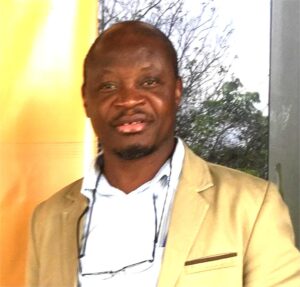
- General Information
- Symposia
- Atomic Layer Deposition
- Biomaterials and polymers
- Characterizacion and metrology
- Luminescence Phenomena
- Microelectronics and MEMS
- Nanostructures
- Plasma and Vacuum
- Renewable Energy: Materials and Devices
- Semiconductors
- Tribology, Surface and Interfaces
- Theory and Simulation of Materials
- Thin Films
- Science Outreach
- Plenary Lectures
- Short Courses
- Book of Abstracts
- General Program
- Agenda
- Poster Session
- Oral Session
- Congress Registration
- Abstract Submission
- Committees
- Fees
- Awards/Grants
- Athletic race 2025
- Sponsors and exhibit
- Hotel Accomodation
Flash and Reactive Flash Sintering in Electroceramics Manufacturing

Prof. Jean-Claude M’Peko, PhD
São Carlos Institute of Physics, University of São Paulo (USP)
Original from Congo-Brazzaville, he received his PhD degree in Physics from the University of Havana, Cuba, in 1998. He is Professor at the São Carlos Institute of Physics of the University of São Paulo (IFSC-USP), Brazil, since 2004. He completed Post-Docs at the University of Minho (Portugal, 1999-2000), University of São Paulo (Brazil, 2000-2004) and University of Colorado at Boulder (USA, 2012-2014). His research work covers the field of materials processing and characterization. This includes conventional and field-assisted flash and reactive flash sintering, and discriminating between bulk versus interface (e.g., grain boundary) contributions to the dielectric response of electroceramic-like bodies. Understanding the correlations that apply between (micro)structural characteristics and (di)electrical properties in materials is the final goal of his research interest. He has published about 90 papers in international peer-reviewed scientific journals, currently showing an h-index of 27 (Web of Science), and has supervised several student research projects, including 4 Master Science and 6 PhD. He is recipient of the 2014 Edward C. Henry Award granted by the Electronics Division of the American Ceramic Society (ACerS, USA).
Conventional processing of functional materials in the form of electroceramics normally involves several steps that include calcination of the reagent-grade raw materials at a relatively-low temperature for synthesis of the end-product powder, followed by grinding to reduce particle size, compaction to get a reasonable green density, and finally sintering at a high temperature for densification. Introduced in the literature in 2010 is a novel approach known as flash sintering, which is assisted by an electric field, and whose main characteristics is that high-density electroceramics can be produced from green compacts in mere seconds, at furnace temperatures well below those required in conventional sintering. This technique has become largely explored in materials processing, and much of the effort includes advancing, as much as possible, the debate on the underlying mechanism(s). This talk aims to present results observed not only in single-phase powders, with a review of the effects of electric field strength and current density, but also in multi-phase powders where flash synthesis plus sintering, called reactive flash sintering, can develop in a single running experiment. Particularities and generalities applying in both scenarios will be discussed, including the case of ionic conductor/insulator composites where percolation effects may become the determining key.
Congress Registration
Early Bird Payment
August 31, 2025
Abstract Submission
Abstract submission deadline
June 22, 2025
Key Dates
Abstract Submision Deadline:
June 22, 2025
Intercovamex Award Best PhD and Master´s Thesis:
August 31, 2025
Student grant application deadline:
July 4, 2025
Franscisco Mejia Lira Award:
August 31, 2025
Early Bird payment:
August 31, 2025
